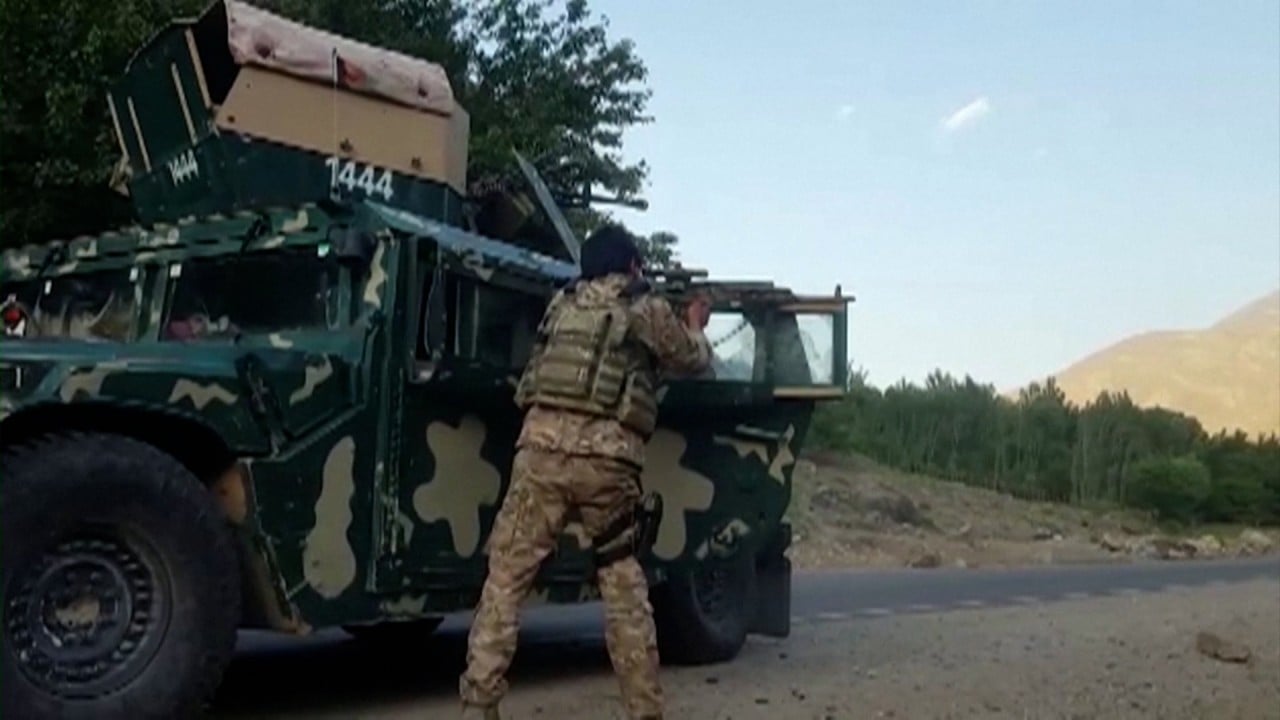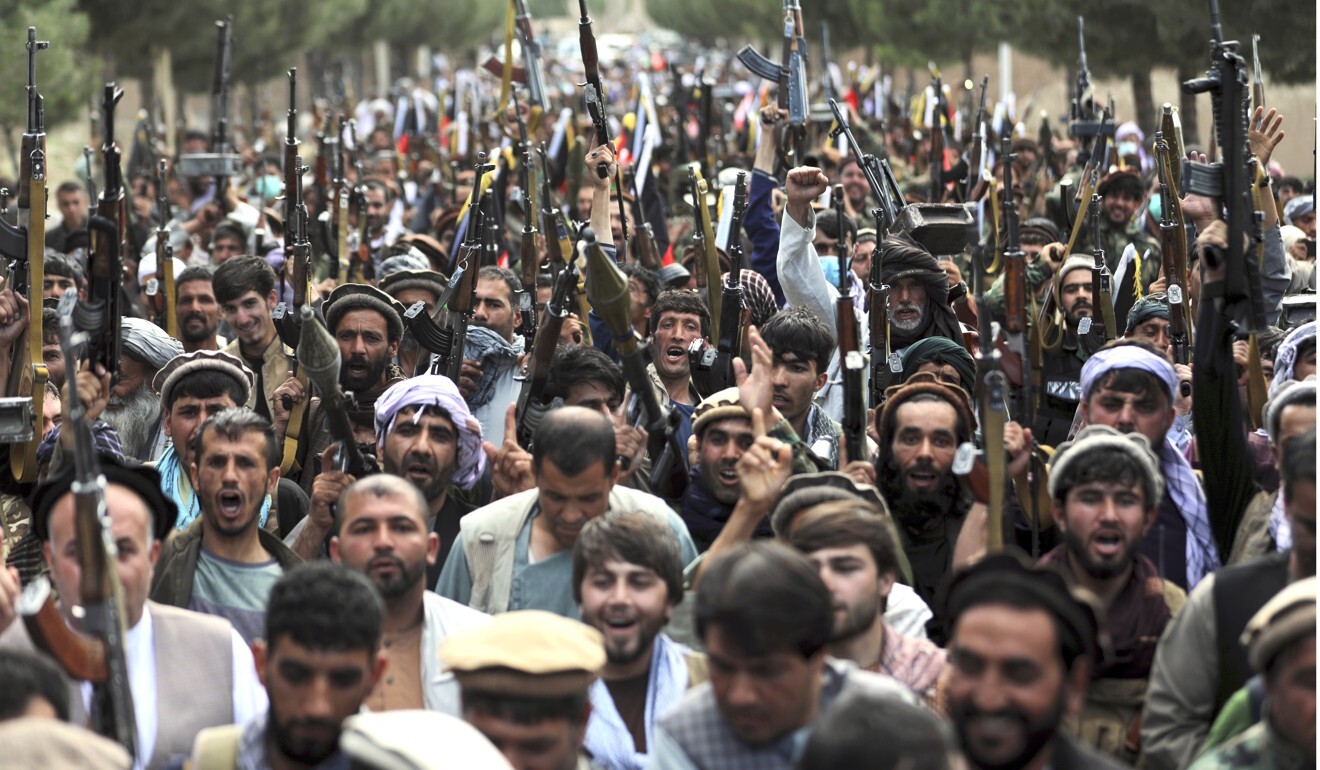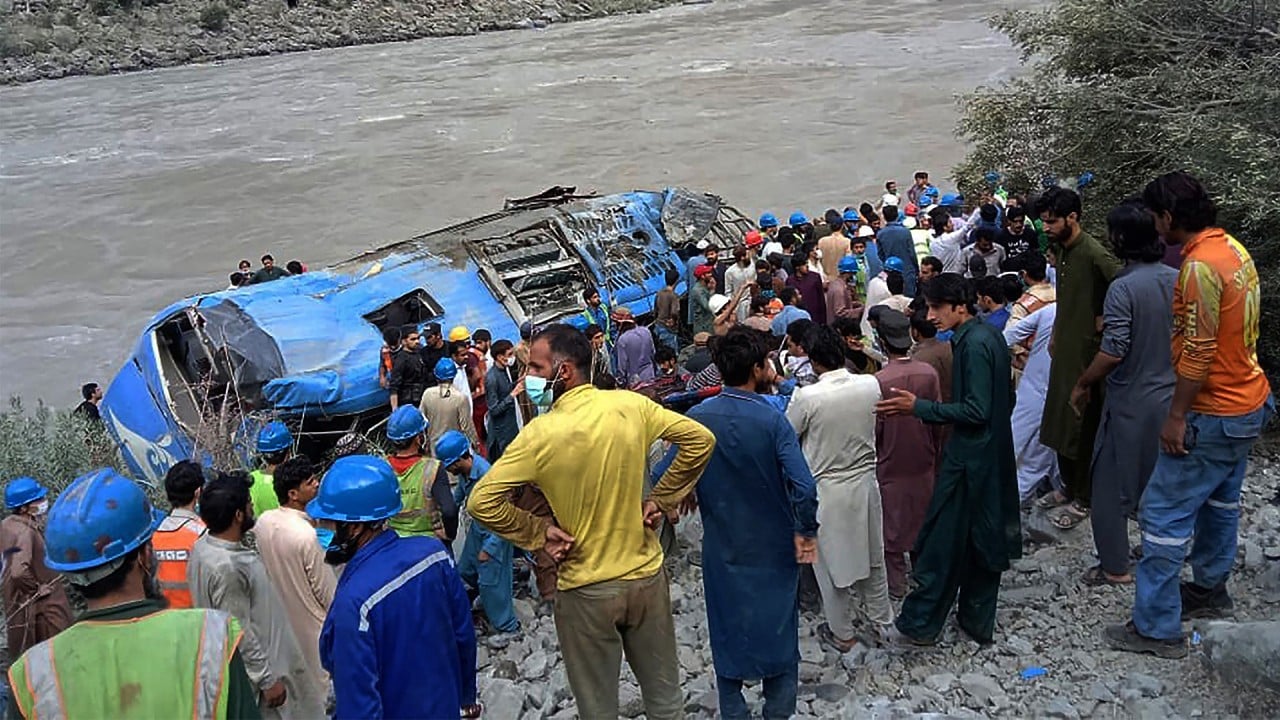
China-Pakistan alliance in Afghanistan worries India, as Taliban offensive continues
- New Delhi’s strained ties with Beijing and Islamabad have left it wary of how both are working together in Afghanistan as international troops exit the country
- The issue will be on the agenda when US Secretary of State Antony Blinken visits India this week to meet with PM Narendra Modi and Foreign Minister S. Jaishankar
New Delhi’s relations with both Beijing and Islamabad are strained, and the five-point plan for collaboration announced by Chinese foreign minister Wang Yi and his visiting Pakistani counterpart Shah Mahmood Qureshi during their meeting over the weekend is an unwelcome prospect in India, which is also gearing up for instability arising from a likely civil war in Afghanistan.
C. Raja Mohan, director of the Institute of South Asian Studies at the National University of Singapore, said closer collaboration between China and Pakistan could be a “serious challenge for India”.
“China’s global and regional footprint has been increasing and it is a matter of time before it is visible in Afghanistan,” he said.
Afghanistan government imposes night curfew to stem Taliban advance
Such concerns will be on the agenda this week as the country hosts US Secretary of State Antony Blinken, who is expected to meet external affairs minister S. Jaishankar on Wednesday along with India’s Prime Minister Narendra Modi.
Afghan army chief General Wali Mohammad Ahmadzai was meant to visit on Tuesday to discuss defence cooperation with Indian military and security officials, but his trip was postponed on Monday due the Taliban’s ongoing offensive, according to Indian media reports quoting the Afghan embassy.
The Taliban, which claims to control 85 per cent of the country, is demanding the resignation of Afghan President Ashraf Ghani, a situation Kabul is trying to avoid by way of ongoing negotiations with the movement in Doha, Qatar.

03:56
Civil war looms in Afghanistan as UK ends military mission, but Beijing extends a hand
The Afghan military, which has faced losses on the battlefield in recent weeks, is now concentrating its forces on the most critical cities and vital infrastructure such as border crossings, with the US pledging continued support through air strikes even after all its troops leave by September – marking the end of a 20-year American military presence.
Li Li, the deputy director of the Institute for International Relations at Beijing’s Tsinghua University, said foreign minister Wang’s meeting with his Afghan counterpart earlier this month had made clear China’s hopes for Afghanistan.
A statement released after the talks said China, among other things, wanted to prevent civil war, ensure Afghanistan did not become a haven for terrorists and for intra-Afghan dialogue to continue.
“China can only contribute to stability and development in Afghanistan but it is not in a position to bring about a [political] resolution,” said Li Li, adding that if necessary China might also join a United Nations-mandated peacekeeping mission in the country.
US troop exodus from Afghanistan leaves Russia, China worried about extremists
Observers say that China’s good relations with the different political players in Afghanistan – including the Taliban, as well as neighbouring countries – are positive for regional stability.
Chinese infrastructure investments in Afghanistan will also play a role in its economic development. China’s nationalist tabloid Global Times earlier this month said officials from Beijing, Islamabad and Kabul were inclined to extend the CPEC, which is part of Beijing’s Belt and Road Initiative, into Afghanistan.
Retired Indian diplomat Amar Sinha, who served a stint as ambassador to Afghanistan, said no party would object to improving connectivity in the country. However, the CPEC would run through Indian territory that he said was under Pakistan’s “illegal occupation”, and getting Kabul involved in the project would seem akin to getting its endorsement that the territory rightfully belonged to Pakistan.

Meanwhile, New Delhi’s suspicions that Islamabad is supporting extremists in Afghanistan who could target India, and India’s efforts to establish influence in South Asia to counter China, are also factors on the minds of Indian policymakers.
But according to Li Li from Tsinghua University, even though China had appointed veteran diplomat Yue Xiayong as its new special envoy for Afghanistan, Beijing was unlikely to rush in as a major investor as its focus was now on humanitarian assistance ahead of a negotiated political settlement. “Only when peace and stability is assured will Chinese investment play a bigger role,” she said.
Ayesha Siddiqa, a Pakistani political scientist who specialises in civil military relations in South Asia, said Islamabad and Beijing had something to offer each other in Afghanistan.
Afghanistan government and Taliban to meet again after inconclusive talks in Doha
Pakistan had cultivated the Taliban and now wanted it to be part of Afghanistan’s governance structure, she said, adding that Islamabad was also able to keep lines of communication with the insurgents open for China, while Beijing’s involvement in the CPEC had helped shield infrastructure development in Pakistan from security threats.
With Afghanistan known as the “graveyard of empires”, where several big powers – the British, Russians and the Americans – have met their defeat, there is also speculation in India about how China will fare there.
But Siddiqa said China’s main focus would be to protect its domestic concerns.
“No one has a recipe for stability in Afghanistan and China will try to ensure its own territory and Muslim population are not threatened,” she said.

01:51
Nine Chinese nationals among 13 killed in Pakistan bus blast
In Pakistan’s case however, its fraught relations with India meant that Pakistani generals might still be looking at the short-term benefits of continued support for the Taliban against Kabul and pushing out New Delhi. This would be in the form of helping the Taliban take control of more territory despite resistance from Kabul and its allies, which include India.
India has spent US$3 billion over the past 20 years on development projects in Afghanistan, including the construction of hospitals, bridges, gas stations, and the parliament building.
India’s worries over Taliban in Afghanistan fuels talk of revived ‘Northern Alliance’ with Iran, Russia
Rajiv Bhatia, a retired diplomat who is currently distinguished fellow at Mumbai-based think tank Gateway House, said one concern was that if China focused on Afghanistan’s economic situation, Pakistan might be given the space to play a bigger role in security and political affairs – which would compromise India’s access to Central Asia and Eurasia through Afghanistan.
But Tsinghua University’s Li Li said China in the foreseeable future would be open to working with countries such as the US to promote peace and stability there.
Gautam Bambawale, who served as India’s ambassador to China from 2017 and 2018, said the neighbours had discussed cooperation on Afghanistan before their border dispute escalated last year, and had even spoken of jointly training Afghan diplomats in New Delhi and Beijing.
“But such discussions ground to a halt due to the pandemic and China’s military actions in Eastern Ladakh,” he said. “They are unlikely to recommence any time soon.”
Additional reporting by Associated Press

